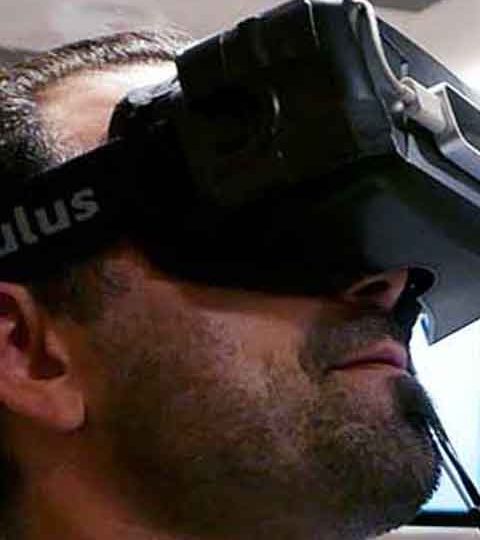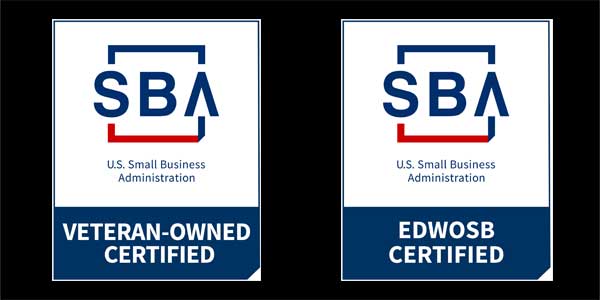360 Immersive Discusses Intellectual Property Concerns With Brad Frazer of Hawley Troxell Regarding Virtual Reality Content Development.
Transcription
David: Hi. This is David from 360 Immersive and today we have the pleasure of talking to Brad Frazer from Hawley Troxell. Now, Brad, you’re an intellectual property attorney. That is an absolutely amazing thing to have on a business card. “Hi. What do you do?” “Oh, I’m an intellectual property attorney.”
Brad: You know it does sound fun, David, but sometimes it’s hard to explain. Unlike plumber or architect, an intellectual property attorney is a little bit more involved, but it’s a fun thing to do every day.
David: So, why is that important to the small businessmen, to the content creator, to all the folks out there that are embracing this new technology of virtual reality and augmented reality? Why is that important?
Brad: You know intellectual property is important in that space,
David, because it’s a way to protect what people create. Intellectual property is a kind of law that gives remedies to people who shoot video or write songs or write computer code or – in your case –make VR content. And intellectual property law is the way that we protect and monetize those creations.
David: So, you’re saying that when we create a virtual reality app for a specific purpose, we should absolutely be considering the ramifications of IP – short for intellectual property – in the sense of that production?
Brad: That’s right.
David: I mean it’s something that we should consider. In fact, we should consult with folks like you.
Brad: Sure or – after a period of time – you’ll get very good at it, David, because a smart guy like you will understand it very quickly. But it might be helpful to explain that there are four kinds of intellectual property. There are patents and copyrights and trademarks and trade secrets and they’re all different. They all do different things.
But for people who create and use virtual reality content, the two that are probably most likely to be implicated are patents and copyrights. Patents protect a new way of doing something – a new invention like a better mousetrap – and copyrights protect creative content like computer code, photographs, and video.
David: So, if I were to create a new VR mount –
Brad: Mount. Mm-hmm.
David: Camera mount that would –like our Rover – run around and do great things.
Brad: Right.
David: I could actually patent that if I felt there was enough difference as far as you know, it’s different, it’s new, it’s unique.
Brad: Right.
David: But copyright is more about the content that we’re shooting. Even the app would potentially apply … is that copyright or is that a patent?
Brad: It can be both. Your example’s very good. Let’s assume you invented a new camera mount and you wrote new software to operate the camera on the camera mount. We would you patent law to protect the functionality of the mount and we would use copyright law to protect the software that you wrote that controls how the camera maneuvers and runs around and operates. So, copyright and patent law would be both used in that circumstance.
David: Okay. So, the average producer that’s maybe building a game or they’re doing the latest VR movie. Tell us why they should pay attention to this because they’re down in their basement somewhere and they’re coding and they’re doing great things. Tell us how it affects them.
Brad: You know, David, it depends on whether they want to monetize or make money from their activities. There are a lot of people who write open source code. Great.
David: Yeah.
Brad: And their objective is not to monetize it, but to contribute it to the public good – and I think that’s terrific – but there are people who run businesses and have to pay a mortgage and pay employees. So, they want to monetize that virtual reality content – that code, whatever it may be, that video that they shot – and copyright law and patent law give us a means of controlling how people use our content that we create, and it’s Econ 101. If you can control the supply of something, you can control the price. But without those controls, people can use your stuff and it’s much more difficult for you to control it.
David: So, the person that’s, for instance, putting together a VR game – even from a modest standpoint – they should still consider the ramifications of that because that ultimately might mean money in their pocket versus somebody else walking away with it?
Brad: That’s right, David. The way I phrase it is like this. I ask a client like you. I’ll say, “David, would it make you angry if someone stole and used that thing without your permission.” It’s kind of the, “Does it make you angry” test. And if the answer’s, “Well, sure. That’s my content that I created.”
Then we should look at protecting it using either copyright law or patent law or trade secret law or trademark law or some combination because then that, David, will give you the opportunity to stop people who are stealing it and using it and be able to monetize it so you can be recognized and paid for your work.
David: So, here’s a question. That sounds really expensive, but I know in working with you that it doesn’t have to be. Can you tell us a little bit about – again, using that example of the guy putting together the wonderful virtual reality game in his basement – how should he engage somebody like yourself that maybe it doesn’t have to be expensive and yet it offers protection for him?
Brad: Well, very good. And one thing that I like to tell my clients is that intellectual property law can be very inexpensive because the miracle of it is that you create most of it yourself. So, for example, the gentleman who’s writing a VR app in his basement under the principles of copyright law, the moment he writes lines of source code, a copyright is created. It’s a [inaudible] [00:05:59] and he doesn’t actually have to pay a lawyer or pay any money to create a copyright.
The only expense would be if he wishes to register his copyright with the copyright office – and that’s very inexpensive. If you do it yourself, it’s well less than $100.00 and – if you engage a lawyer – it should maybe be $100.00 or $200.00 to register a copyright. Patents are more expensive, but the most foundational kind of intellectual property that a virtual reality practitioner would encounter is copyright and it’s very inexpensive.
David: And so that ability to protect yourself can be – as an entry point – very inexpensive and then that game takes off.
Brad: Right.
David: You know when you’ve already established a relationship with an attorney such as yourself that you’re gonna need additional protection as it starts to get more popular and you start to see revenue rolling in and that’s the time to raise the bar.
Brad: Right. That’s right. One of the main things we tell people is – as they’re starting a company – and let’s assume, for example, we have someone who wishes to start a company to write VR experiences or VR code. The first thing we tell them is to form an entity. Form a little company – an Idaho LLC or a Nevada Limited Liability Company – that’s inexpensive. And then the next thing we encourage them to do is – as they’re creating this content – make sure they own the copyrights.
And that’s a little bit more of a subtle issue, but the first thing we do is always form a company. And the second thing we do is – as we’re writing code or shooting video or writing music – we want to make sure we own those copyrights and the main thing, David, that affects that is if you use open source code. Many people will go to GitHub or SourceForge and download open source code, but that’s something that can be discussed with an intellectual property attorney, sure.
David: So, I mean generally almost anybody could be applicable to intellectual property, whether it’s somebody out shooting 360 video or somebody using Unity and putting together that wonderful VR game or creating what could be a feature film or the first great, feature film VR movie.
Brad: Right.
David: Almost anybody needs to pay attention to intellectual property.
Brad: Your point made earlier is an excellent one, David. Most people don’t pay attention because they believe that it’s expensive and they must have a lawyer. But what I’d really like your viewers to know is that as they’re creating VR content – whether they’re writing code or writing a screenplay or actually shooting the video – they are creating copyrights.
They own them and they are – at that point – free to go out and monetize them by allowing third parties to use them and pay money, which is called a royalty. That’s typically what it’s called. If they want to have a remedy to stop people from stealing and using their content, then an additional layer of protection is necessary, but the foundational entry point creating those copyrights is automatic and it’s free.
David: Well, thank you for joining us today. We have Brad from Hawley Troxell talking about intellectual property and this is David from 360 Immersive. We’ll see you next time.
End of Presentation


